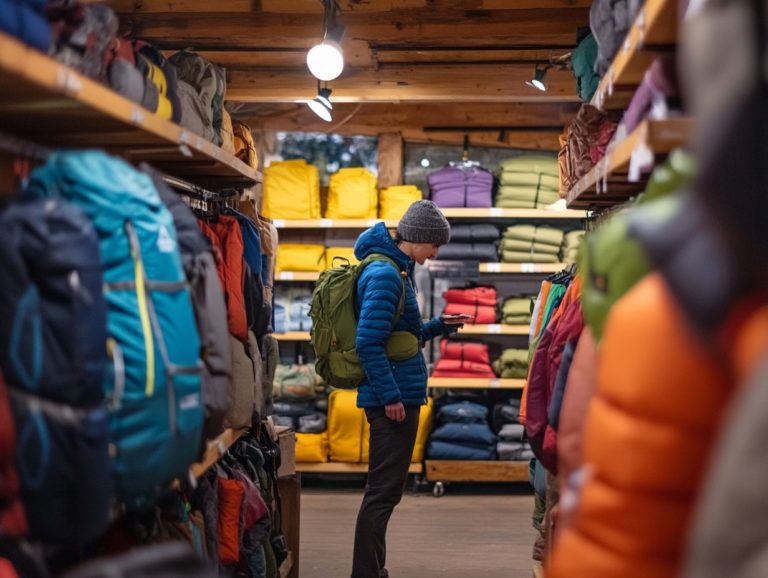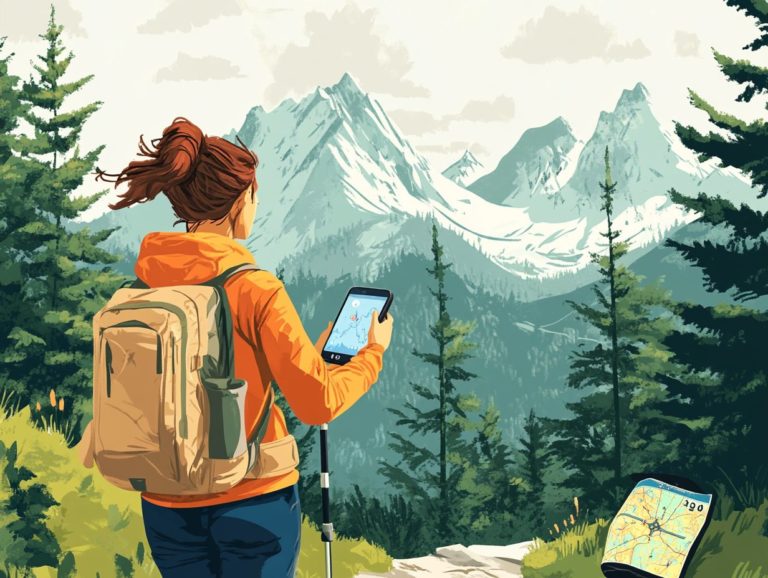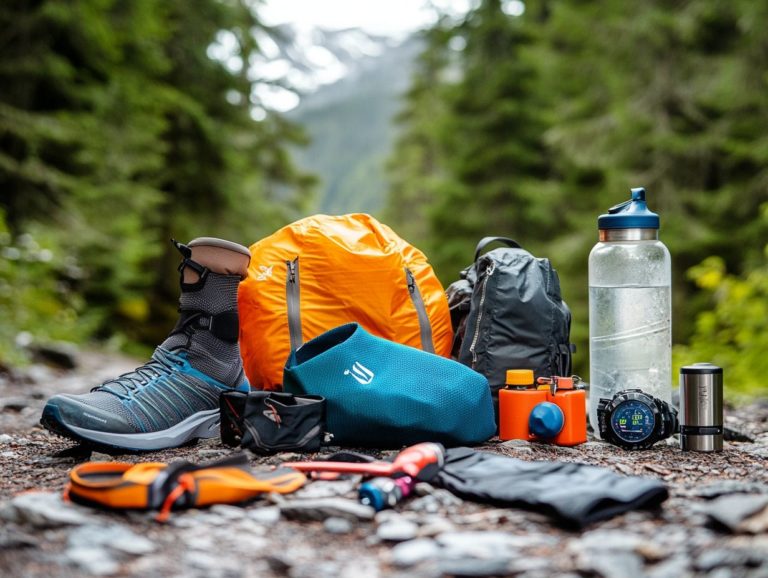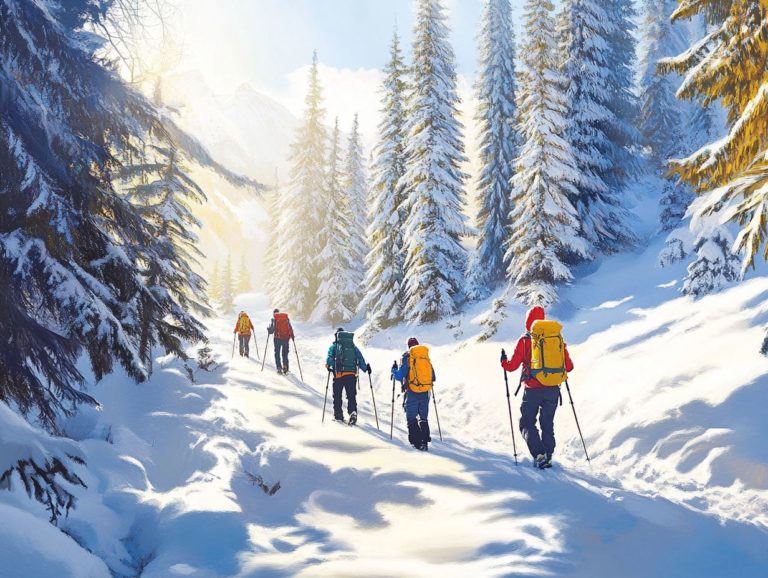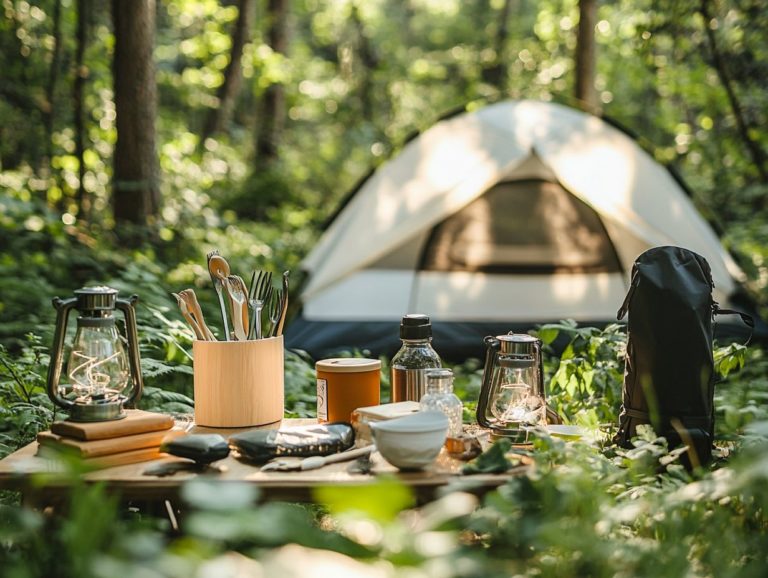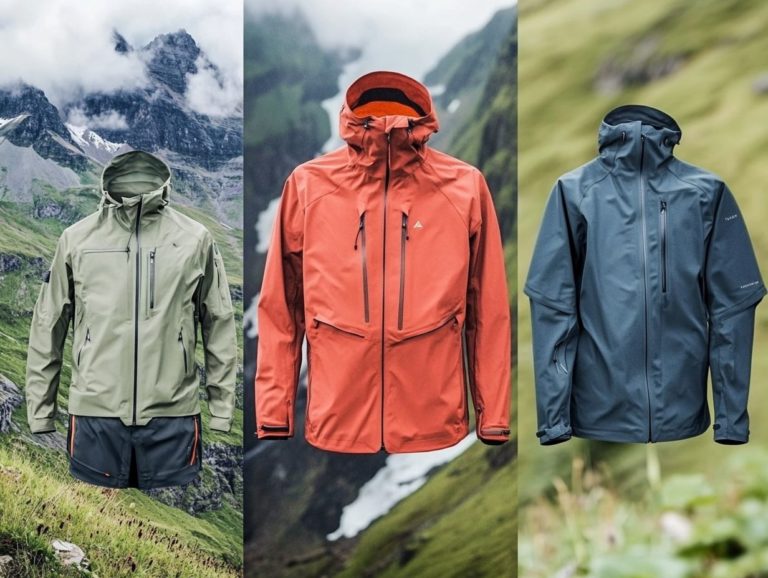How to Secure Your Gear While Camping?
When you re enjoying the great outdoors, the last thing you want to worry about is your camping gear.
From tents to sleeping bags, keeping your essentials safe enhances your camping experience.
This article highlights why campsite security matters. You will learn which items to keep an eye on and how to protect your valuables effectively.
Contents
- Key Takeaways:
- Types of Gear to Secure
- Ways to Secure Your Gear
- Essential Tips to Protect Your Gear
- Frequently Asked Questions
- How to Secure Your Gear While Camping and Ensure Your Personal Safety?
- What are some ways to secure my gear while camping?
- Should I keep valuable items in my tent or in my car?
- What should I do if I’m camping in a remote area without a car?
- Is it safe to leave my gear unattended at a campsite?
- What should I do if I notice someone trying to steal my gear?
Key Takeaways:
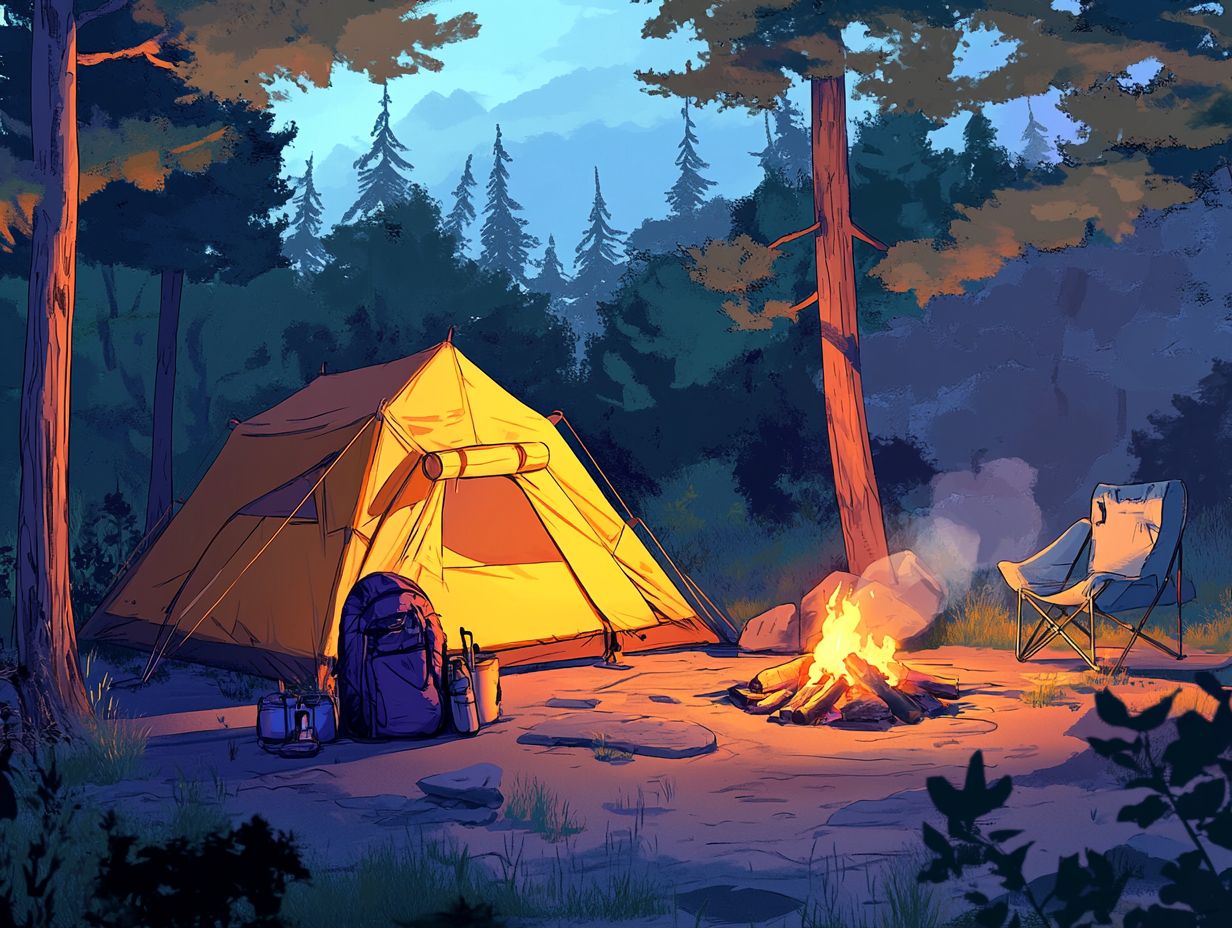
- Secure your camping gear to prevent theft or damage using locks and safe storage techniques.
- Protect high-value items like tents and sleeping bags with locks and cables.
- Have a solid emergency plan to ensure a fun and safe camping trip.
Why is Gear Security Important?
Gear security is crucial for your camping trip. It ensures your valuables stay safe from theft and other risks.
While enjoying nature, think about how to protect your belongings. This is especially important when camping with family, where everyone should feel secure.
A secure campsite allows you to relax without worrying about losing your valuable items.
The potential threats don t stop at human theft; wildlife intrusions can also pose significant risks. For example, leaving food unattended might attract bears or raccoons, leading to chaotic and potentially dangerous situations.
Before your trip, consider getting bear-proof storage containers for safety. Similarly, when you park your vehicle at a trailhead, simply locking the doors and windows isn t enough. Hiding valuables and using anti-theft devices can discourage opportunistic thieves.
Focusing on gear security helps reduce risks so you can enjoy your adventure.
Types of Gear to Secure
When planning a camping trip, pinpoint which types of gear need safe storage to prevent theft and ensure easy access throughout your outdoor adventure.
Items like tents, sleeping bags, and outdoor cooking gear are not merely essential for comfort; they can attract unwanted attention if left unsecured.
Moreover, valuables such as electronics and food provisions require a solid storage solution, especially in bustling campgrounds or RV parks. By understanding which gear needs extra protection, you can implement how to store your camping gear properly and ensure effective safety measures, guaranteeing a worry-free experience in the great outdoors.
Tents, Sleeping Bags, and Other Essentials
Tents and sleeping bags are essential for your camping trip, providing both shelter and comfort in the wilderness. However, secure handling of these items is crucial to protect your valuables.
Proper storage, along with outdoor cooking gear, is key to mitigating risks associated with theft and wildlife encounters.
By ensuring your tent is zipped and using anti-theft techniques, you can greatly enhance your personal safety while enjoying nature. If you re camping with family, it’s important to educate everyone on the importance of safeguarding these essentials.
An effective strategy is to set up your campsite in a well-lit area, ideally close to other campers. The presence of others acts as a strong deterrent to thieves.
Selecting gear with built-in security features, like locks for zippers or straps, adds another layer of protection.
Regular maintenance of your tents and sleeping bags not only prolongs their life but also ensures they remain functional and safe.
Familiarizing yourself with the environment is crucial. Keeping track of your valuables and maintaining a watchful eye can significantly lower the chances of losing them, especially in busy campgrounds.
Ultimately, a blend of awareness, proper gear storage, and maintenance will lead to a more enjoyable camping experience.
Ways to Secure Your Gear
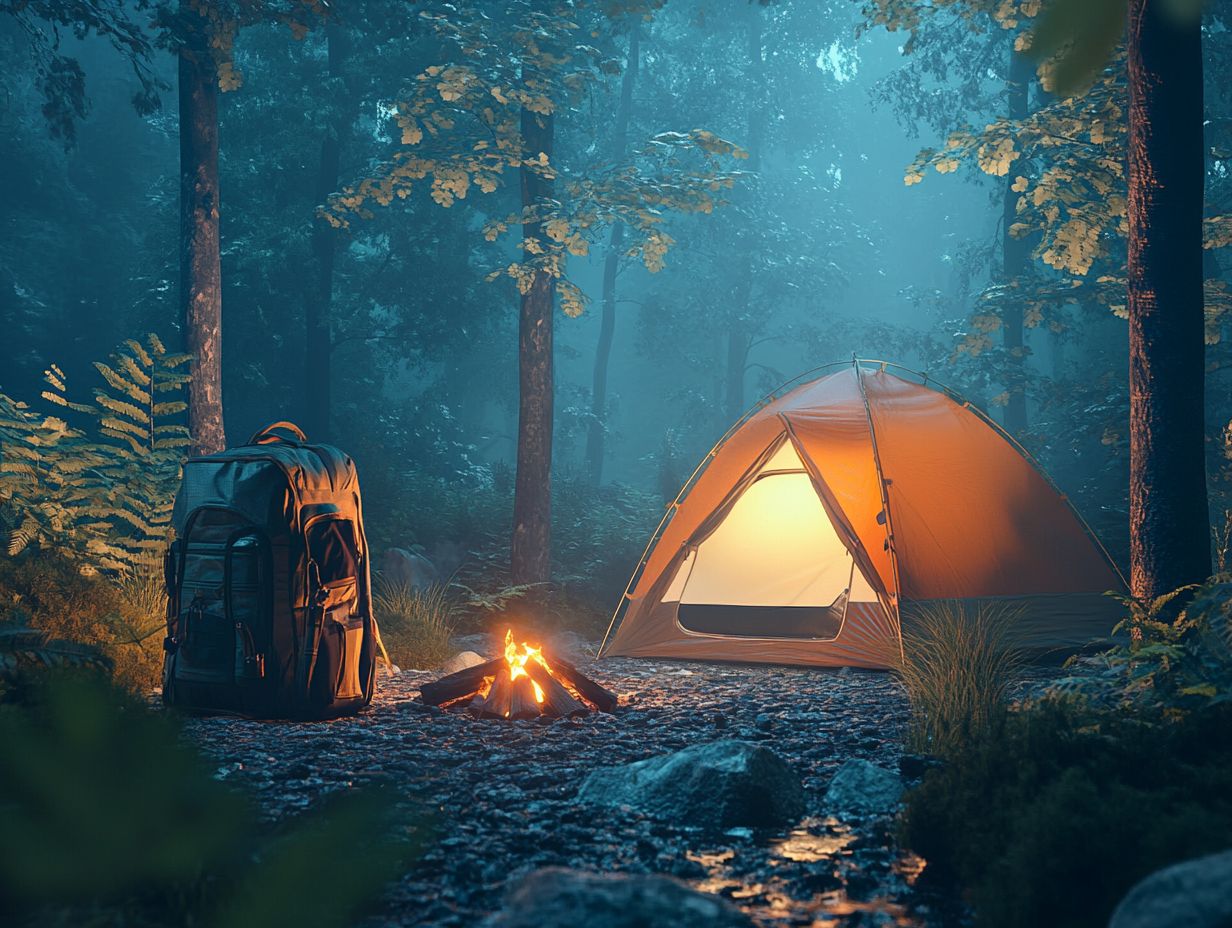
Securing your gear during a camping trip requires a mix of smart strategies that use both technology and practical measures to enhance theft prevention and personal safety.
One dependable method is using camping locks, like cable locks a type of lock made with a flexible cable and combination locks to protect your tent and equipment from unauthorized access.
Using locking techniques, such as placing valuables in a portable lock box or setting up alarms, offers peace of mind while you enjoy nature or a barbeque with friends.
By understanding and applying these security measures, you can enhance your camping experience and embrace the joys of the great outdoors.
Locking Techniques and Tools
Using effective locking techniques and tools is vital for keeping your camping gear secure and protecting your valuables from theft, especially in busy RV parks.
Using security cameras at your campsite can deter potential threats, while portable alarms alert you to any unauthorized access.
Consider using camping locks like padlocks and combination locks. These simple but effective tools can greatly enhance your gear security.
Choosing the right locking tools allows you to focus on what matters: enjoying nature without worrying about theft.
To improve your security, use specialized locks for different equipment. Cable locks are great for larger items like bicycles and hard-sided containers for provisions.
It’s important to assess the value of your gear and select sturdy locking mechanisms that can resist tampering, ensuring your camping experience is safe.
Placing security cameras not only helps monitor the area but also serves as a visual deterrent, giving you peace of mind.
Alarms are also useful, providing immediate notifications of intrusions and ensuring your valuables are protected.
Always evaluate the specific risks associated with your camping location and choose locking tools that address those challenges for optimal protection, especially in new areas.
Essential Tips to Protect Your Gear
Along with locks and alarms, there are valuable tips for enhancing gear security that you should consider for a safe and enjoyable camping experience.
Simple precautions, like keeping an eye on your neighbors, discussing theft prevention strategies, and forming safety patrols, can greatly contribute to a more secure camping environment.
Having emergency plans like designated meeting spots and reliable communication methods adds extra layers of safety to your outdoor adventures.
These steps help protect your belongings and promote a sense of safety among all campers.
Get ready for a worry-free camping experience by securing your gear today!
Preventive Measures and Emergency Plans
Implementing preventive measures and establishing emergency plans are essential aspects of camping security that can greatly reduce the risk of theft. They also enhance your personal safety.
By adopting strategies such as scouting for secure campsites, familiarizing yourself with safety patrols, and setting up a communication plan with fellow campers, you can cultivate a proactive atmosphere that encourages vigilance. Check in regularly with one another, share your locations, and exchange crucial information about potential hazards or wildlife encounters.
Having a well-thought-out emergency plan that includes contact details for local services and a designated meeting spot provides you with peace of mind. This ensures a swift response in case of any incidents. Take these important steps now to protect your belongings and enjoy peace of mind!
These comprehensive measures not only safeguard your items but also build friendships and trust within the camping community, making the experience enjoyable and secure for everyone involved.
Ensuring a Safe and Enjoyable Camping Experience
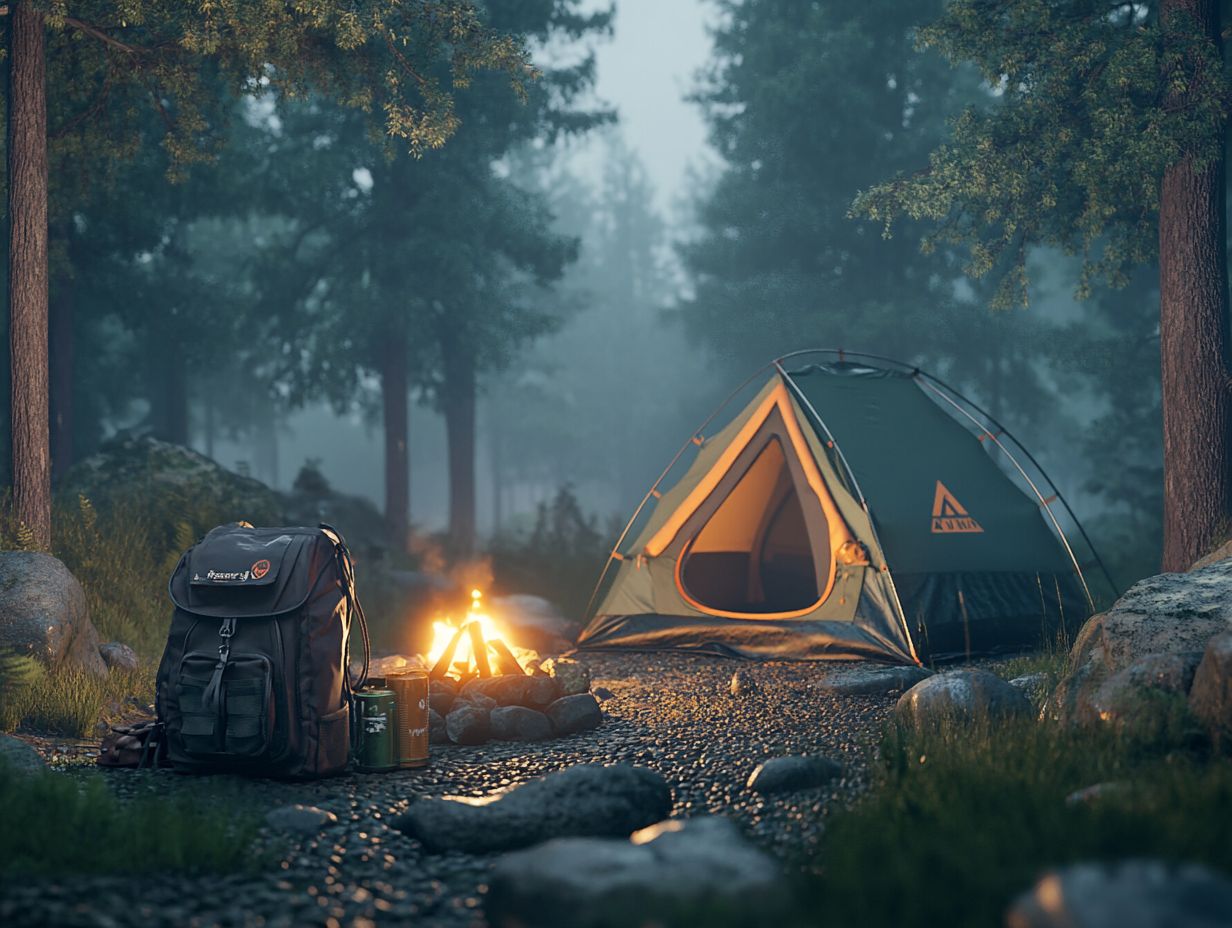
Ensuring a safe and enjoyable camping experience requires a thoughtful blend of securing your gear, thorough preparation using checklists, and keen awareness of the great outdoors. By taking effective steps to safeguard your camping equipment and valuables, you can immerse yourself in the moment and create cherished memories with your family as you explore nature’s wonders.
Preparation is essential; everything from packing checklists to understanding wildlife behaviors, like knowing which animals are active at night, enhances your adventure and keeps you one step ahead. A secure campsite fosters a sense of community and encourages fellow outdoor enthusiasts to share valuable tips and experiences, enriching your journey.
This sense of community truly shines when campers gather to share safety knowledge. Topics like identifying poisonous plants or devising emergency plans enhance safety and nurture friendships among campers, creating a stronger sense of community.
Engaging in group activities, whether a guided hike or a potluck dinner, strengthens these connections and creates lasting memories. Ultimately, a fulfilling camping experience relies on your individual readiness combined with a collective spirit, allowing everyone to fully immerse themselves in the tranquility of nature without a hint of worry.
Frequently Asked Questions
How to Secure Your Gear While Camping and Ensure Your Personal Safety?
When camping, it’s important to keep your gear safe and secure to prevent theft and damage. Here are some tips on how to do just that.
What are some ways to secure my gear while camping?
One way is to use a lockable storage container to store your gear when you’re not using it. You can also use a cable and padlock to secure larger items like coolers and bikes to a tree or picnic table.
Should I keep valuable items in my tent or in my car?
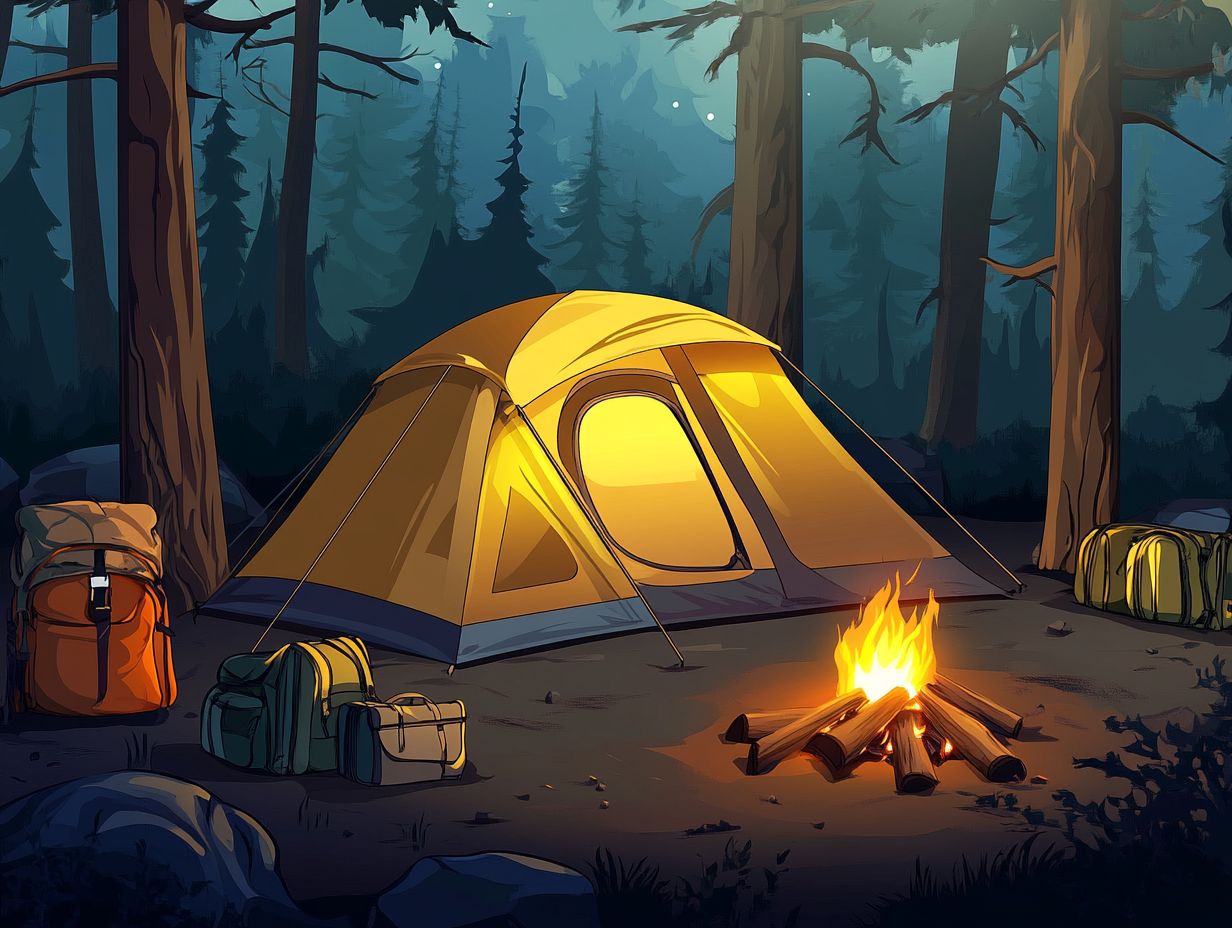
Neither is a foolproof solution, but it’s generally safer to keep valuable items in your car. If possible, park your car in a well-lit and visible area and keep your gear out of sight.
What should I do if I’m camping in a remote area without a car?
If you’re backpacking or camping without a car, keep your gear close to you at all times. Consider investing in a lightweight and portable safe to store your valuables.
Is it safe to leave my gear unattended at a campsite?
It’s generally not recommended to leave your gear unattended at a campsite, especially in busy or crowded areas. If you need to leave your campsite, ask a trusted neighbor to keep an eye on your gear.
What should I do if I notice someone trying to steal my gear?
First, try to calmly confront the person and ask them to stop. If that doesn’t work, seek help from nearby campers or park staff. It’s always better to prevent a theft before it happens, so keep a watchful eye on your gear at all times. You may also want to report any suspicious behavior to law enforcement.
We encourage you to share your own camping safety tips and experiences to foster community engagement!

